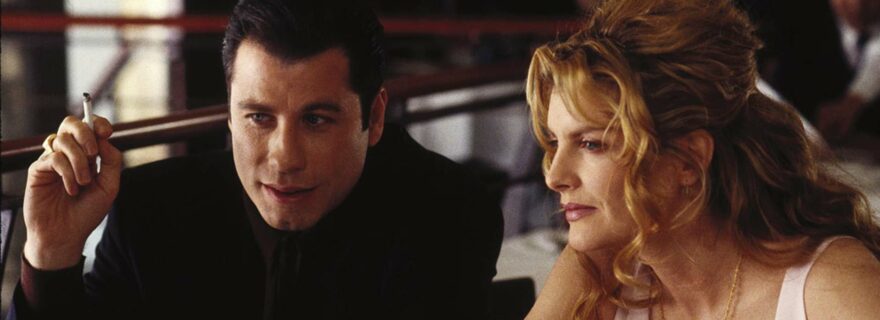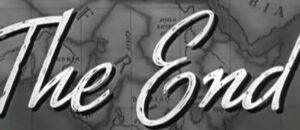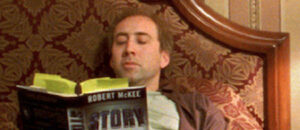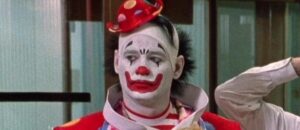After Pulp Fiction landed in 1994, every aspiring filmmaker wanted to be the next Quentin Tarantino. Many of them assumed that the best way to do that was to imitate Tarantino’s style. Once or twice, this worked out. More often, unfortunately, it didn’t.
As Tarantino’s new (and allegedly penultimate, if you believe the director) feature Once Upon a Time in… Hollywood arrives in theaters, we remember the wave of Tarantino knockoffs that followed after Pulp Fiction, for better or worse.
Jason Gorber
I remember vividly seeing Siskel and Ebert spend an entire episode talking about the Tarantino Effect. It was revelatory. Having had my view of cinema changed forever by Reservoir Dogs and riding the rush of Pulp Fiction, I felt that my own enthusiasm for this kind of cinema was being shared by these giants of criticism, which made me feel like maybe my own journey and theirs through the world of movies might not be so different after all.
My favorite of the films that came out during that period trying to match Tarantino’s tone – gritty, clever, slightly bent but thoroughly engaging – was Things to Do in Denver When You’re Dead. Andy Garcia plays Jimmy “The Saint” Tosni, and the likes of Christopher Lloyd, Treat Williams, and Tarantino stalwart Steve Buscemi round out the great cast. The film was dismissed at the time as a mere clone, but Scott Rosenberg’s script had a bit of bounce he’d bring to High Fidelity later. For his feature debut, director Gary Fleder does well to make keep the disparate tonalities coherent. It’s a hidden mid-’90s gem worthy of rediscovery.
Brian Hoss
There are several Tarantino-esque non-starters that either draw my ire, such as 2 Days in the Valley, or just don’t achieve anything better than an obvious counterfeit, such as Bad Times at the El Royale. One movie that nailed some of best bits of Pulp Fiction while managing not to go the Amway Tarantino route is Doug Liman’s 1999 film Go. Maybe I’m held captive by a product of the era, but with a unique cast full of names that have either moved onto better things (like getting behind the camera) or just faded away out of theaters, I have always thought that Go was a blast. It’s funny, it’s cool, and at times it has just the right amount of suspense and drama to make me feel majorly concerned for the characters. AFI Top 100, no. But immensely entertaining, quotable, and rewatchable, yes.
M. Enois Duarte
The worst Tarantino knockoff is easily, hands-down, Troy Duffy’s asinine The Boondock Saints. I know that the movie has a rabidly-defensive following largely responsible for its continued popularity. The story of fraternal twins on a vigilante killing spree through the streets of Boston is the sort of plot that would normally pique my exploitation-cinema sensibilities. The complete bonkers absurdity should make me love this low-budget action thriller, but it doesn’t because the execution is an idiotic, incompetent mess. From Duffy’s wannabe Tarantino style, to the ridiculously dumb characters (particularly Willem Dafoe’s pointless FBI agent), and the terrible dialogue – none of which can be justified as “so bad it’s good” – the movie is simply the product of arrogance. It’s just plain bad.
Adam Tyner (DVDTalk)
My circle of friends decided in college that we’d all head out to the movie theater every weekend, and we’d round robin who was in charge of selecting that week’s film. The first week we tried this, one of my roommates chose The Big Hit.
James was never allowed to pick the movie again. In fact, The Big Hit was so dreadful that we immediately abandoned the movie-of-the-week concept altogether. More than twenty years later, I still reflexively shudder whenever I see any mention of the film’s title. Thankfully, that rarely happens, since hardly anyone the world over ever bothers to bring it up. We as a civilization rose up and collectively agreed that, no, we’re not gonna reopen the wounds inflicted by The Big Hit.
The movie takes an awful lot of its cues from Pulp Fiction: ostensibly sympathetic hitmen, an oddball ensemble, melding a dark sense of humor with all the carnage, hyper-profane dialogue veering off on tangents you’d never expect from a crime flick, and on and on and on. What it lacks is Tarantino’s… well, everything else. The characters are insufferably grating. The film’s sense of humor is one clumsy swing and miss after another, especially its bizarre fascination with Jewish stereotypes. I do kind of love the whole deal with the video store clerk who won’t stop harping about an overdue copy of King Kong Lives, though. The manic editing and overcaffeinated visual style are a failed stab at style-over-substance. The end result is in the running as the absolute worst film I’ve suffered through in a theater.
Indeed, American theaters would remain safe from director Kirk Wong afterwards. His directorial credit was stricken from his follow-up, The Disciples, which apparently started life as a pilot for UPN. Nearly twenty years would pass before he’d be entrusted with another feature film. First-time screenwriter Ben Ramsay only wound up with a couple other writing credits after The Big Hit, among them the generally reviled Dragonball: Evolution. But hey, plenty of the other talent involved went on to bigger and better things. I even spent a day hanging out with Danny Smith, who played the video store clerk, in Montreal with Corey Feldman on the set of Big Wolf on Campus a couple decades back. That meets my definition of “bigger and better,” anyway.
Josh Zyber
One of the effects Tarantino has had on Hollywood is an almost remarkable ability to resurrect the careers of has-been actors. Aside from the inexplicable success of Look Who’s Talking, John Travolta was almost totally washed-up through most of the 1980s, churning out flop after flop after flop. After Pulp Fiction, however, suddenly everyone wanted to believe that he was still a major star.
Released in late 1995 (about a year-and-a-half after Pulp Fiction‘s debut at Cannes), Get Shorty was the first post-comeback vanity project for Travolta. Although based on a novel by Elmore Leonard, the film adaptation was clearly influenced by Tarantino in a lot of superficial ways. It’s another tale of overly-talky gangsters who are too cool for the room, and director Barry Sonnenfeld relies heavily on clever camera tricks and a soundtrack filled with needle-drop music cues.
The movie was well reviewed and a box office hit, and most people probably remember it as being pretty good. Not me, personally. It didn’t work for me at all when I saw it in the theater. I found it bland and redundant, and Travolta himself was too smarmy and obnoxious for my liking. The film felt like the watered-down Big Hollywood copy that inevitably follows any indie success. Like the overpriced vanilla milkshake at Jack Rabbit Slim’s, it tasted adequate going down but, honestly, what’s the point?
To be fair, I never bothered to revisit the movie since that first viewing (nor have I watched the recent TV spinoff with Ray Romano). Maybe it’s better than I remember. I just don’t have much desire to find out.
Your Turn
Which Tarantino copycat movies do you remember fondly, or not so fondly?





njscorpio
I believe if we didn’t have ‘Pulp Fiction’, we wouldn’t have had ‘Smokin’ Aces’. The whole idea of following hired killers as the main characters, an ensemble of a wide variety of actors, all violently crossing paths for some dark humor. I never see it really mentioned as a good movie…but to me it’s a fun movie, like ‘The Day After Tomorrow’.
Bolo
‘Snatch’ is easily the best of the quirky ensemble crime comedies that popped up after the success of ‘Pulp Fiction’. Statham really hit his stride as an actor in that one, acting as the anchor who grounds the far more cartoonish cast of characters around him. Ritchie brought a really infectious energy to the execution and the cast are all having a lot of fun playing their characters.
Julian
Professor Duarte, have you ever seen the ‘Overnight’ doc, about the rise and (mostly) fall of Boondock director Troy Duffy? It’s hilarious, and well-made.
M. Enois Duarte
I have! It’s a great doc and cautionary tale about inflated, groundless egos getting the best of mediocre talent.
Josh Zyber
AuthorI’m not going to deny that The Boondock Saints is, objectively, an awful movie, but I laughed my ass off through the whole thing and had a great time with it.
M. Enois Duarte
I wish I could enjoy it to that degree. The action and characters are silly enough that should be a funny dark comedy, but no matter how many times I try to watch it, the movie never musters even a chuckle from me.
Josh Zyber
AuthorThat cat scene, though!
Adam Tyner
For the first time ever, you’re making me want to crack open that copy of The Boondock Saints I was given years ago and never bothered to watch.
Josh
I remember seeing The Big Hit when it came out in theaters. It was a slog then and I don’t imagine it’s aged well. Basically killed any chance of a Lou Diamond Phillips comeback and, rightly, ended the possibility of Antonio Sabado jr making it big in the mainstream.
The worst thing about the Tarantino Effect is when you show Pulp or Reservoir Dogs to someone unfamiliar, they say things like, “Oh they did this on Family Guy” or something else ridiculous.
Csm101
The first one I thought if was Things to Do in Denver When you’re Dead but Jason already claimed it. I remember going to the video store once and the clerk sold Layer Cake to me as very Tarantino-esque.
Im also thinking Suicide Kings had that vibe as well. I blind bought it in the early days of dvd just because it was dirt cheap compared to all the other DVDs.
Scott
Seven Psychopaths. Set in Los Angeles, full of quirky characters (including Christopher Walken), an off kilter script that keeps you on your toes. Could’ve easily been a Tarantino film.
AndyJWS
I have a soft spot for The Big Hit, but maybe it’s because I saw it in an entirely different context – not as Tarantino-esque (was it marketed like that in the US?) but as one of the late-90s crop of very tongue in cheek action films like Con Air. If anything, it came across as more influenced by John Woo than Quentin Tarantino, including the random side themes and OTT elements – and without the expectations of Tarantinoism over it works much better. And what a use of a Robbie Williams song 😉
On the marketing front, in the UK at least the Vietnamese Cyclo (a glacially-paced poetic drama) was marketed with Tarantino comparisons like “Imagine Pulp Fiction relocated to Ho Chi Minh City” and “Makes Reservoir Dogs look tame”… maybe the quotes got mixed up from a different film?